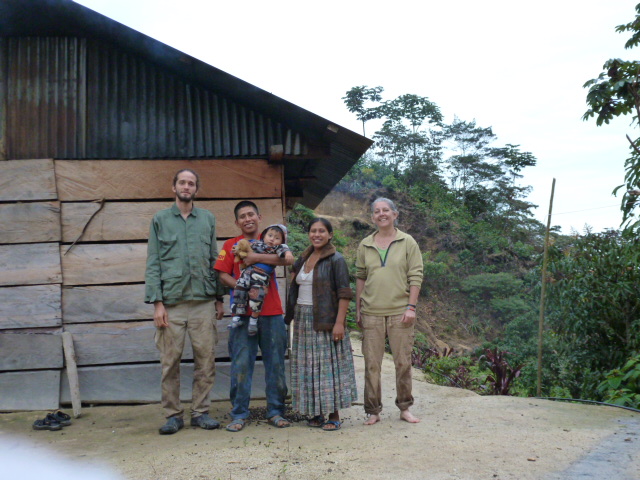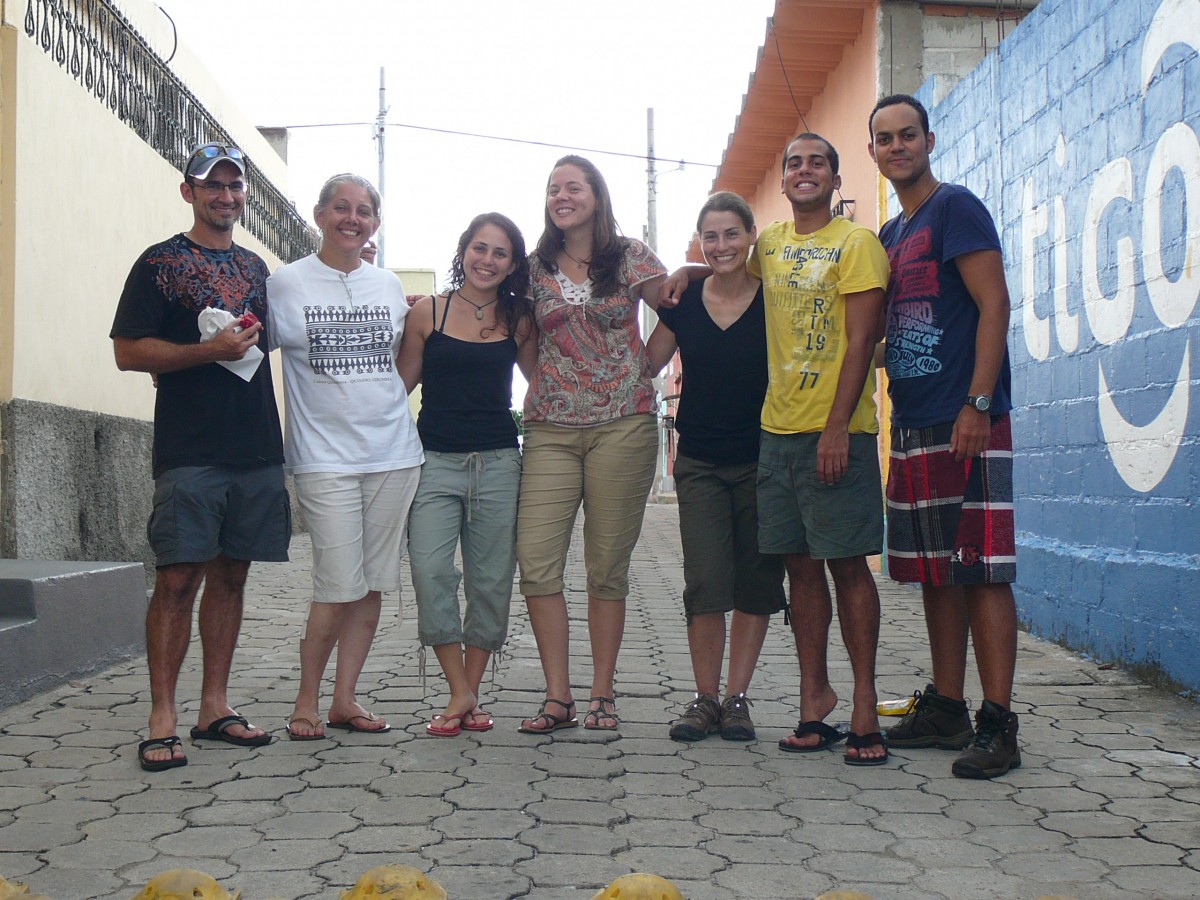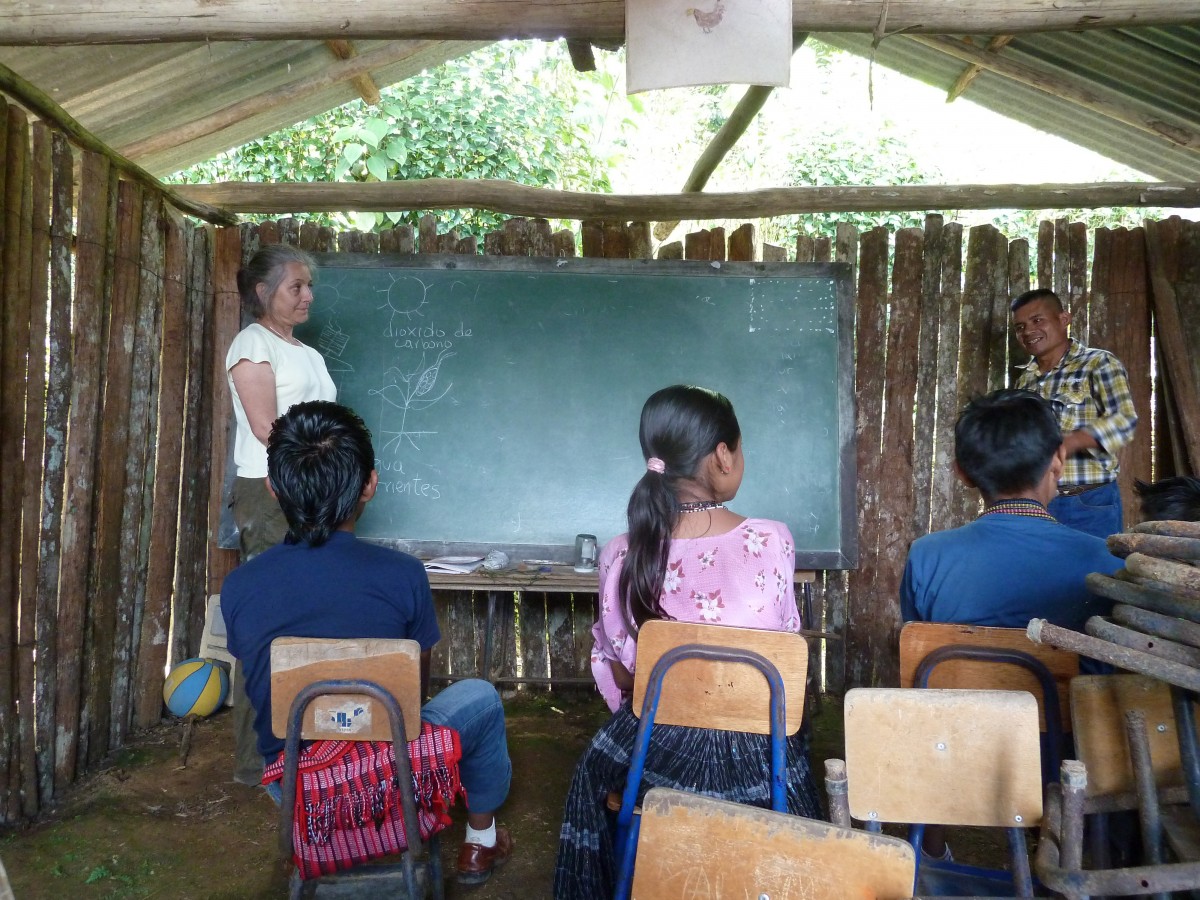Carla Restrepo: Leaving a mark with ecological studies
Submitted by Lorraine Doralys Rodriguez-River... on
At some point in our lives we have asked questions regarding the environment, the animals that inhabit planet earth, and climatic conditions. How does an increase in temperature could affect some organisms? How do small changes in a specific environment can have a large-scale effect on our planet? How does human activity affect our bodies of water? These are some of the questions that Dr. Restrepo, an ecologist and professor in the Department of Biology at the University of Puerto Rico Río Piedras, is attempting to answer through her research projects.
Dr. Restrepo had a very interesting childhood. Since she was a little girl she had many questions about the workings of living organisms around her. Her mom and dad were scientists back in Colombia. Since an early age, she was in awe with her mom’s biology textbook. Her dad was a mathematician and had a large collection of books and magazines on various topics. Carla enjoyed organizing his library. Although she cannot pinpoint a specific event that inspired her to be a scientist, she grew up in an environment were knowledge was highly esteemed.
She grew up in several countries allowing her to be exposed to different cultures. Early in her childhood she lived in the United States, Mexico, and Puerto Rico and at age 8 moved to Colombia. Shed lived there until she graduate from the Universidad del Valle in Cali where she majored in Biology. She had her first research experience, published her first peer-reviewed article, and fell-in-love with birds during her undergraduate years.
After graduation, she was hired by the Regional Corporation of the Cauca Valley the equivalent of the Department of Natural Resources in Puerto Rico. This job brought her close to a beautiful bird, Semnornis ramphastinus, which is endemic of western Colombia and Ecuador. This bird species, related to toucans, was seriously endangered by pouching and the destruction of its habitat. Restrepo discovered that this bird, native to west Colombia and Ecuador, is one of a few frugivore bird species that displays a cooperative raising its young, in which mostly the male offspring stay with the parents to care for its siblings, a previously unknown behavior.

Carla with Semnornis ramphastinus. Photo provided by Dr. Restrepo.
“I loved Biology, but it wasn’t until after my first job experience […] where I worked in my own research project, a kind of “freelance” project, that I made my decision”. The decision that Dr. Restrepo was referring to was to pursue a graduate degree. Colleagues, professors, and other scientists pushed and helped her through the early stages of this journey. She moved to the United States to start her Master’s degree, and later on she completed her PhD. She got admitted to the University of Florida, where her thesis committee suggested that she could use the recent discoveries about Semnornis ramphastinus as a foundation for her graduate work.
Dr. Restrepo remembers she faced several challenges at the beginning of her graduate career. “I had to face two main challenges: First, I had to leave all my loved ones behind, including my partner back in Colombia […] Nevertheless, I was not expecting to have to face the greatest challenge of all, which was the tragic death of my partner. Secondly, I had to communicate in a language that I had to re-learn”.
These challenges did not prevent her from completing her Master’s degree. A few years later, her tenacity and determination allowed her to complete a PhD at the same institution. At the time, she learned a great deal from attending the lab meetings of a neighbor lab. She remembers feeling insecure about two things: the way she spoke English and the fact that she thought she was not as knowledgeable as the other students. For these reasons, she almost never participated during the meetings. The principal investigator (PI) who led these meetings, let her know that in order to keep attending she needed to speak up and participate more often. This experience helped Dr. Restrepo realize the value of actively participating during talks, seminars, and lab meetings.
Dr. Restrepo remembers quite well a suggestion from her PhD advisor. He said that practice and adequate preparation were crucial to avoid being nervous during oral presentations. This advice was pivotal in her professional development. Similarly, many young scientists who study abroad have struggled with issues like this in the early stages of their careers. Constructive criticism, which can be at times painful, was crucial to improve and advance her career. Additionally, encouraging words and little pats on the back at the right time reassured her during those grad school years.

Dr. Restrepo and her student in a research trip to Guatemala in 2012 with a Q'eqchi family. Photo courtesy of Dr. Restrepo.
One of her dreams was to become a professor. She developed the skills needed to pursue her dream while she worked as a teaching assistant. This experience confirmed how much she loved teaching. “I knew I wanted to be a professor way before this experience, but being a TA was decisive for me”, she expressed with enthusiasm.
A few years later her dreams came true. This was possible thanks to a few decisions she made while completing her PhD. A professor that she described as “tough, great, and fair” and whom she admired deeply, asked about her plans after earning a PhD. Nowadays, Dr. Restrepo recognizes the importance of female mentors, because that specific professor asked about her future plans, whereas her PhD advisor never did. This professor explained that many doors would open if she completed a postdoctoral training. Both, this professor and a member of her dissertation committee led her to new and exciting paths.
Without wasting any time, Dr. Restrepo started looking for postdoctoral fellowships. She applied for a Fulbright fellowship and she was shortlisted as a semi-finalist. However, she was awarded with a National Science Foundation (NSF) postdoctoral fellowship. Because of this, she had the opportunity to work at Stanford University and the University of New Mexico, where she met extraordinary people.

Dr. Restrepo with her students in Guatemala. Photo courtesy of Dr. Restrepo.
Dr. Restrepo’s achievements and perseverance paid off when she was recruited by the Department of Biology at the University of Puerto Rico in 2001. Currently, her research interests focus on landscape ecology, ecosystem ecology, plant-animal interactions, and conservation biology. During her early years as a professor, she was the principal co-investigator (co-PI) on an NSF proposal. These funds were used to support two graduate students, one from Puerto Rico and one from Colombia. “With good, motivated, critically thinking, and hard-working students, it is possible to launch a laboratory”, Restrepo said.
Among her most recent research projects it is worth to highlight a study that is being performed in Guatemala to understand the role of landslides in the sequestration of carbon dioxide. This study is helping to understand a little known carbon dioxide sink that represents a high percentage of the carbon missing sink that aids in maintaining the global levels of carbon dioxide.
The Puerto Rico Science, Technology, and Research Trust recently funded another of Restrepo’s projects that is related to the study that allowed her to establish her research program. “My student Johanna Delgado and I made some interesting observations a few years ago about the effect of forest fragmentation on two coquí species, we made an discovery—the presence of bone abnormalities. Since then, I have always wondered about what was causing these abnormalities and a few years later I recruited a student named Zuania Colón to work on this. This time, our observations were not made in the field, they were made in the lab instead. We wanted to understand how elevated temperatures could affect the development of coquí embryos, specifically their phenotype (characteristics that can be observed). The PR Science Trust funding is letting us to collect additional data and to tie up loose ends, which will allow us to strengthen our peer-reviewed articles and research proposals which we will be submitting soon”.
The work of Dr. Restrepo and her research group has been very prolific which is evident from their publication record in peer-reviewed journals and abstracts presented at national and international conferences. Throughout the years Dr. Restrepo has established a solid research program for which she has received funding as a PI and co-PI from the NSF.
Dr. Restrepo shared with us what she enjoys the most about her job: “On the one hand, I love to contribute to the academic and professional development of future generations. […] Through courses, like the Sustainability course, I feel I can make a difference. On the other hand, I love trying to understand nature and to discover new things. Finally, the possibility that my work has a broader impact or that it touches and transforms the lives of regular people, is definitively something that makes me feel accomplished. I have achieved this in Colombia working in the Natural Reserve of La Planada, and I believe I am about to achieve the same in Guatemala”.

Dr. Restrepo teaching at a Q'eqchi community. Photo provided by Dr. Restrepo.
The work that Dr. Restrepo has performed as a researcher, educator, and mentor sets an example for future generations of scientists, specifically for Puerto Rican and Latin American female scientists, and scientists all over the world. Without any doubt her discoveries have had an impact and will keep positively impacting the ecosystems on our planet earth.
If you would like to learn more about Dr. Restrepo visit her profile.








